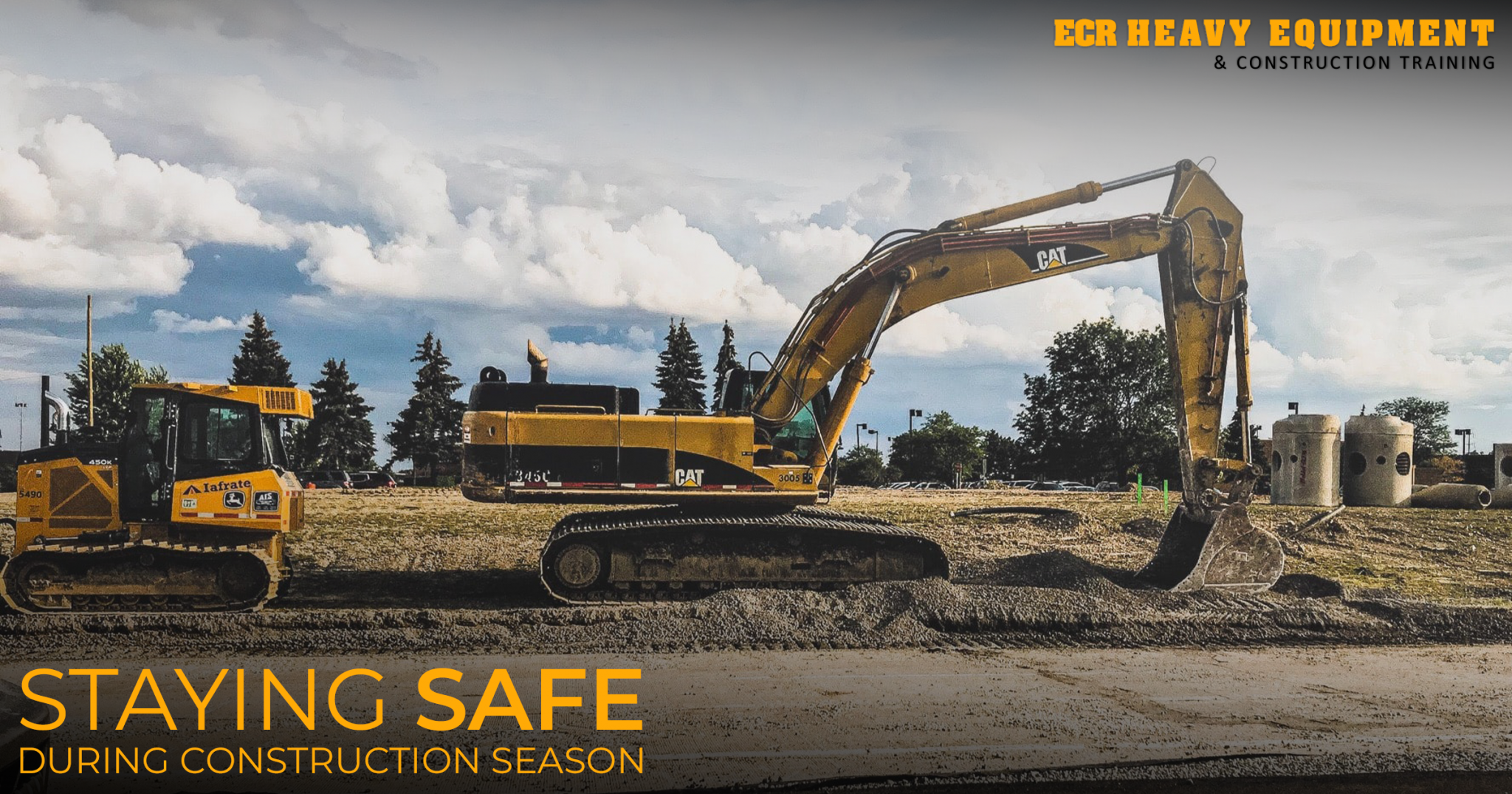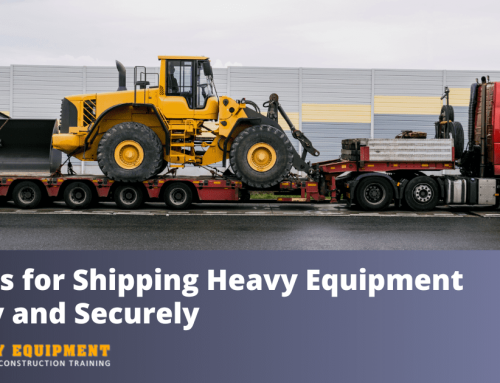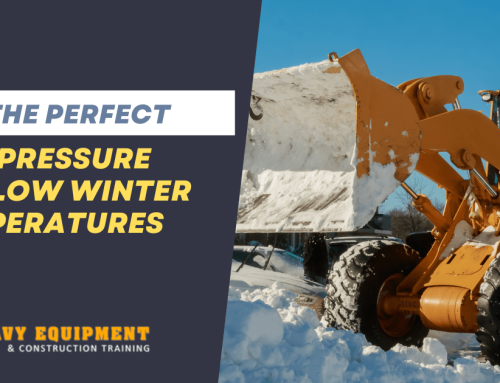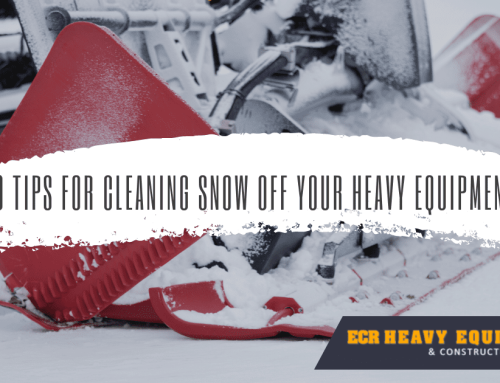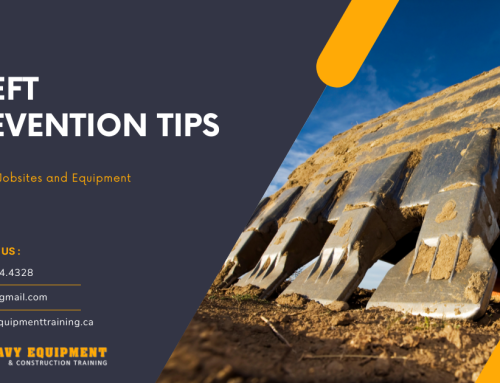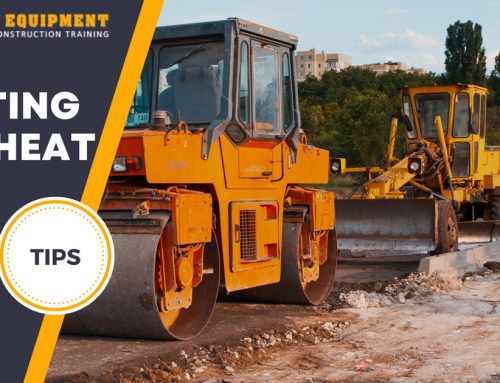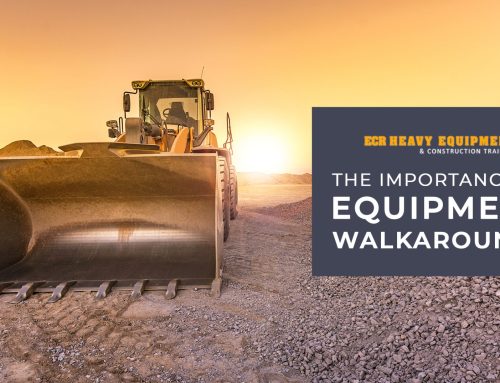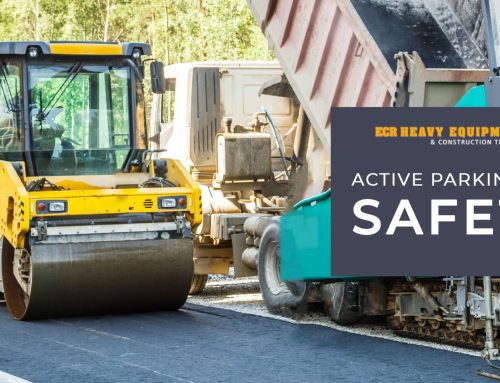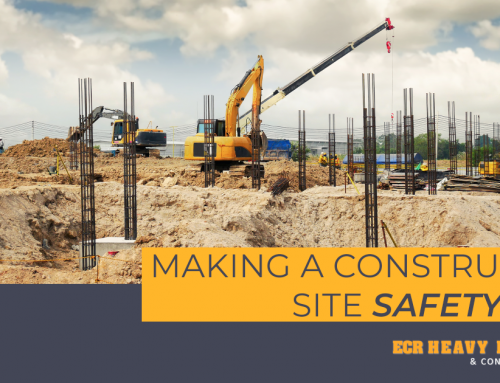It’s well known that without the proper precautions, a construction site can be a dangerous place. It’s important that everyone on site pays careful attention to themselves, and those around them, to avoid accidents and incidents. Here are 4 safety tips for you and your co-workers to keep this summer safe on the site!
With all that happens on a construction site in the run of a day, you may not realize that most injuries to workers happen when they’re getting in and out of their equipment. Slips, falls, and tweaks can all put workers out of commission. Check your boots for dirt and mud before climbing in or out of your cab, and when you climb, make sure to use foot or hand holds before hoisting yourself up. Remember; it’s better to take your time than to get hurt and lose time.
There’s a reason why Personal Protective Equipment (PPE) exists, and that is because they’re needed. Whatever equipment is mandated for the job you’re doing should be worn, and worn properly. Whether that’s helmets on the site, back braces for lifting, or non-skid footwear, by keeping yourself safe, you’re keeping yourself on the job.
If you find yourself having to load or unload equipment, safety is paramount. No matter where you’re working, loading or unloading equipment presents a danger of that equipment falling or tipping. Take all precautions necessary to minimize that risk. Ensuring ramps are clear, and straight, using a spotter, and being clear of the ramp before turning will all help you stay safe.
Some sites might see you climbing ladders, stairs, and scaffolding from time to time. Always check for obstructions or to see if the ladders, or stairs are wet. Regular inspections of ladders are highly recommended to keep an eye for potentially dangerous conditions. If possible, aerial lifts and vertical platforms are going to be your safest options.
Safety on the worksite is always the number one concern. No matter how many years of experience you have, keep safety, yours and your coworkers, top of mind.
